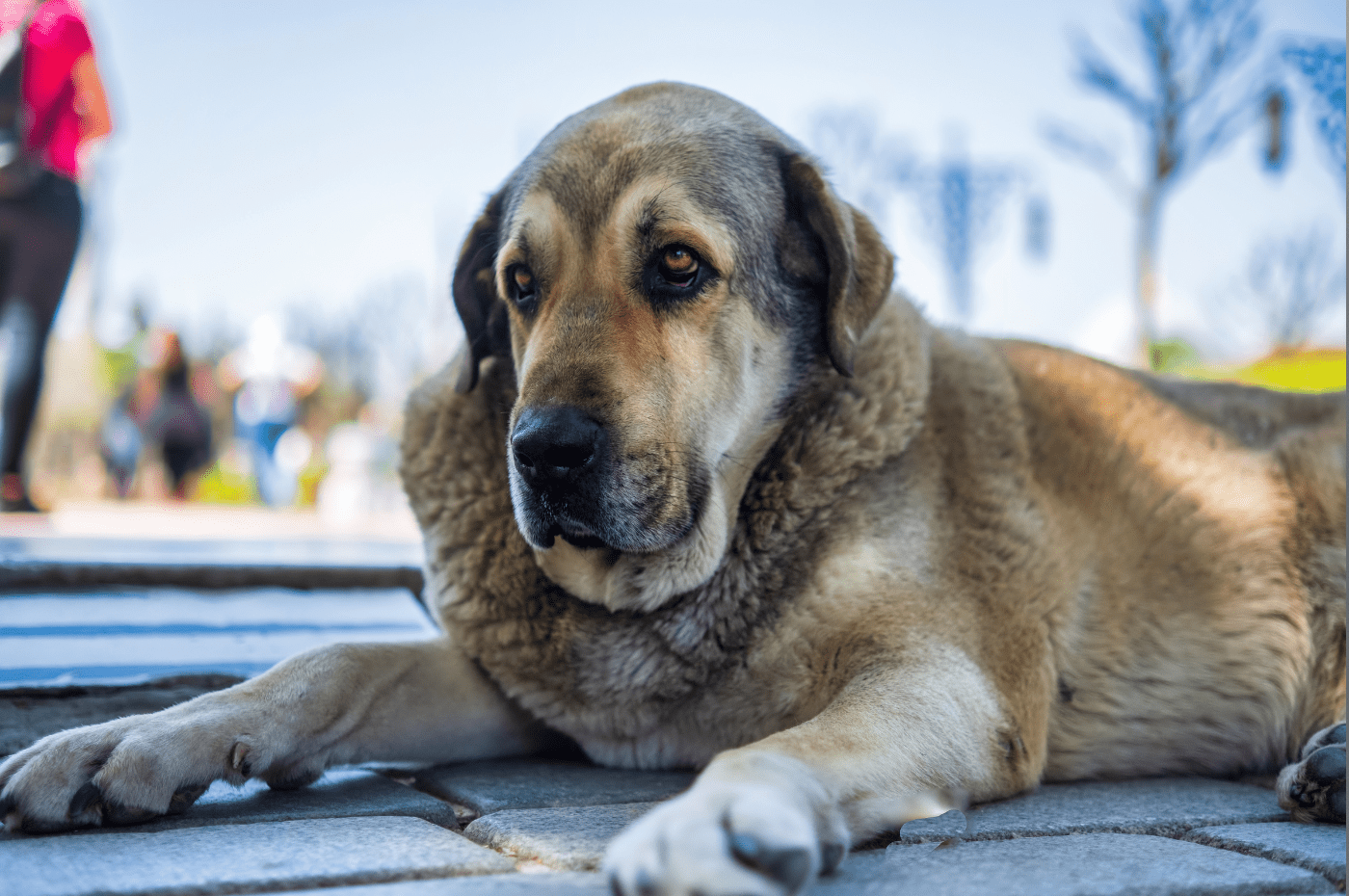Arthritis, also known as Canine Osteoarthritis or Degenerative Joint Disease, is the most common and painful condition found mostly in senior dogs that affects their joints, impacts their overall mobility and quality of life. Just like in humans, arthritis in dogs involves inflammation and degeneration of the joints, which can lead to stiffness, discomfort, and a decreased range of motion.

What Causes Arthritis in Dogs?
There are a variety of factors that can cause Arthritis in dogs:
- Age: Older dogs are more prone to developing arthritis due to the natural wear and tear on their joints over time.
- Genetics: Genetics can play an important role in developing arthritis in dogs. Certain breeds are more predisposed to arthritis. For example, large and giant breeds, breeds with short legs like Dachshunds.
- Joint Instability: Conditions such as hip dysplasia or elbow dysplasia can contribute to the development of arthritis.
- Joint Abnormalities: Abnormal joint development or conformation can increase the likelihood of arthritis.
- Previous Injuries: Previous injuries to the joints, such as ligament tears, fractures or dislocations, can lead to joint instability, it can also lead to misalignment of the bones within a joint, causing increased wear and stress on certain areas. Joint injuries can also trigger chronic inflammation in the joints, releasing enzymes that break down the cartilage, increasing the risk of arthritis later in life.
What are the Signs and Symptoms of Arthritis in Dogs?
Here are a few common symptoms of arthritis in dogs:
- Limping: Dogs with arthritis may show a noticeable limp, especially after rest or inactivity.
- Stiffness: Upon waking or after extended periods of rest, Dogs with Arthritis have difficulty in moving.
- Reduced Activity: Dogs with arthritis show reluctance to engage in physical activities and playing. Their interest decreases in the activities they enjoyed earlier.
- Joint Swelling: Inflamed joints may appear swollen and warm.
- Behavioural Changes: Dogs may become irritable or display signs of pain when touched in the affected areas.
- Licking or Chewing: Dogs may chew or lick the joints in order to reduce pain and discomfort.
- Changes in Posture: Dogs may hunch their back or carry their weight on the front legs if hind legs are affected to compensate for joint pain.
If you observe any of these symptoms in your dog, it is important to consult with your vet, to diagnose the condition and develop a plan for improvement. Early management can improve your dog’s quality of life.
How to Help a Dog with Arthritis at Home?
If you notice any signs of arthritis in your dog, the first thing you should do is consult your vet, so they can diagnose the problem and suggest the next steps.
While arthritis in dogs is a chronic condition, various treatment options can help manage symptoms and improve their quality of life:
#1 Weight Management: Ensuring that your dog maintains a healthy weight is very crucial to reduce stress on the joints. Here are key ways to manage weight in dogs.
- Consult with your veterinarian to assess your dog’s current weight and body condition so they can determine an appropriate target weight.
- Feed your dog a well-balanced and nutritionally complete diet.
- Avoid high calorie treats.
- Monitor food intake.
- Ensure your dog has access to fresh water at all times.
- Establish a consistent feeding schedule.
- Use food puzzles or slow feeders to make mealtime more engaging for your dog.
#2 Provide Joint Supplements: Joint supplements are recommended to maintain an overall joint health of your dog. It is essential to consult your vet before giving any supplements in order to ensure the selected supplement is appropriate for your dog’s needs.
Sharing some common joint supplements for dogs:
- Glucosamine
- Chondroitin
- Omega-3 Fatty Acids
- Hyaluronic Acid
- Vitamin C
- Manganese
- Green-Lipped Mussel
- Collagen
#3 Regular, Low-Impact Exercise: Engage your dog in gentle, regular exercise to maintain joint flexibility and muscle strength. Here are a few you can incorporate:

- Walking
- Swimming
- Hydrotherapy
- Gentle Stretching
- Sit to stand exercises
- Ramps or steps
- Tug of war
- Fetch with toys or balls
#4 Warm Compresses: Applying a warm compress to the affected joints can help ease stiffness. Use a warm, damp cloth or a heating pad on a low setting.
#5 Cooling Pads: On the flip side, cooling pads or ice packs wrapped in a cloth can be applied to reduce inflammation and soothe sore joints.
#6 Comfortable Bedding: Provide your dog with a comfortable, well-padded bed to support achy joints. Orthopedic or memory foam beds can be particularly beneficial.
#7 Massage: Gentle massages in slow, circular motions can improve circulation and provide relief to sore muscles and joints.
#8 Physical Therapy Exercises: Your veterinarian or a professional canine physical therapist can demonstrate specific exercises to improve your dog's mobility.
#9 Anti-Inflammatory Foods: Incorporate anti-inflammatory foods into your dog's diet. Consult your vet for guidance on appropriate amounts. Here are examples of some anti-inflammatory foods that may be beneficial for your dog:
#10 Pet CBD Oil: Some pet owners find that CBD oil, derived from the cannabis leaf, can help manage pain and inflammation. Using high quality CBD Oil specially curated for Pets can naturally alleviate joint pain and discomfort. CBD oil is a natural, non-addictive, plant-based remedy that will help your dog with pain. It also has other benefits like, stress management, neuroprotection and improves the overall well-being of your pet.

#11 Elevate Food and Water Bowls: Raising your dog's food and water bowls can reduce strain on the neck, making eating and drinking more comfortable.
It is essential to monitor your dog closely as every dog is unique and might respond differently to different remedies. Professional veterinary advice is always best to consider for creating a comprehensively safe plan for managing arthritis in your dog.





Leave a comment
This site is protected by hCaptcha and the hCaptcha Privacy Policy and Terms of Service apply.